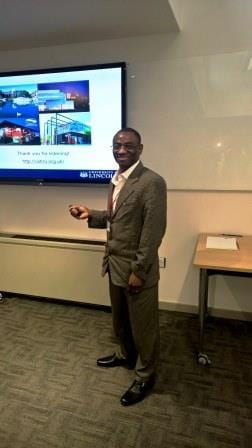CaHRU receives university team achievement award for research 2022

The Community and Health Research Unit received the team achievement award for research for the seventh successive year for 2022 at this year’s university awards ceremony which took place on 10 November at the Engine Shed. The team includes Profs Continue reading CaHRU receives university team achievement award for research 2022




